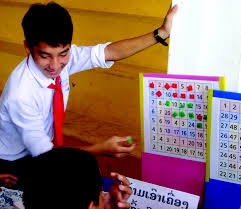Έρευνα στη Διδακτική των Μαθηματικών και Διδακτική Πράξη
Δέσποινα Πόταρη
Λιγότερα
Περίγραμμα

Περιεχόμενο μαθήματος
Το μάθημα θα εστιάσει σε ερευνητικά αποτελέσματα του χώρου της Διδακτικής των Μαθηματικών και στη σημασία αυτών των αποτελεσμάτων αυτών στην διδακτική πράξη. Θα περιλαμβάνει
Α) Μια εισαγωγή στην πολύπλοκη σχέση ανάμεσα στην έρευνα και στην πρακτική καθώς και σε τρόπους μέσα από τους οποίους προσπαθεί να αξιοποιηθεί η έρευνα στην πράξη
Β) Μελέτη και συζήτηση ερευνητικών θεμάτων που αφορούν θέματα μάθησης σε συγκεκριμένες μαθηματικές περιοχές (π.χ γεωμετρία, άλγεβρα, ανάλυση, απόδειξη)
Γ) Μελέτη και συζήτηση ερευνητικών θεμάτων που αναφέρονται στη διδασκαλία των μαθηματικών (π.χ δραστηριότητες, παραδείγματα, αλληλεπίδραση, περιβάλλοντα μάθησης)
Δ) Σχεδιασμός διδακτικών παρεμβάσεων αξιοποιώντας ερευνητικά αποτελέσματα
Μαθησιακοί στόχοι
Στόχος του μαθήματος είναι οι φοιτητές και οι φοιτήτριες να να έρθουν σε επαφή με θεωρητικά ζητήματα και ερευνητικά ευρήματα της Διδακτικής των Μαθηματικών.
Οι μεταπτυχιακοί φοιτητές θα κάνουν εβδομαδιαίες εργασίες (π.χ παρουσιάσεις ερευνητικών άρθρων, αναλύσεις δραστηριοτήτων), θα σχεδιάσουν, θα εφαρμόσουν και θα αξιολογήσουν μια διδακτική παρέμβαση (ομαδικά) που να αξιοποιεί τα ερευνητικά αποτελέσματα σε μια περιοχή και θα παραδώσουν εργασία πάνω σ’ αυτή. Επιπλέον θα δώσουν γραπτές εξετάσεις.
Βιβλιογραφία
Battista. (2007). The Development of geometric and spatial thinking.. In F.K. Lester (ed.) Second Handbook of Research on Mathematics Teaching and Learning. NCTM
Bills, L. Dreyfus, T. Mason, J. Tsamir, P. Watson, A. & Zaslavsky, O. (2006). Exemplification in mathematics education, in: J. Novotná, H. Moraová, M. Krátká, & N. Stehliková (Eds) Proceedings of the 30th Conference of the International Group for the Psychology of Mathematics Education, Vol. 1, 126-154. Prague, Czech Republic.
Filloy and Sutherland (1996). Designing Curricula for Teaching and Learning Algebra, in A. Bishop et al (eds.) International Handbook of Mathematics Education, Kluwer Academic Publishers
Hanna, G. (2000). Proof, explanation and exploration: An overview. Educational Studies in Mathematics, 44 (1-2), 5-23.
Harel, G., & Sowder, L. (1998). Students’ proof schemes: results for exploratory studies. In A.Schoenfeld, J. Kaput and E. Dubinsky (eds.), Research in collegiate mathematics education 3 (pp.234-283). Providence, RI: AMS.
Healy, L. & Hoyles, C. (2000). A study of proof conceptions in Algebra. Journal for Research in Mathematics Education, 31, 396-428.
Kieren, T.E. (1997). Theories for the Classroom: Connections between Research and Practice. For the Learning of Mathematics, 17(2), 31-33.
Kieran, C. (2007). The learning and teaching of school algebra. In F.K. Lester (ed.) Second Handbook of Research on Mathematics Teaching and Learning. NCTM
Lin, F.L. (2005). Modeling students’ learning on mathematical proof and refutation. In H. L. Chick and J.L. Vincent (eds.) Proceedings of the 29th Conference of PME (pp. 3-18). Melbourne.
Ruthven , K. (2002). Linking researching with teaching: Towards synergy of scholarly and craft knowledge. In L. English (Ed.) Handbook of International Research in Mathematics Education, NJ: LEA.
Tsamir, P., & Dreyfus, T. (2002). Comparing infinite sets – a process of abstraction: The case of Ben. Journal of Mathematical Behavior, 21, 1-23
Yackel, E. (2001). Explanation, justification, and argumentation in the mathematics classroom. In Marja van den Heuvel-Panhuizen (Ed.) Proceedings of the 25th Conference of the International Group for the Psychology of Mathematics Education, 1, 7-21.
Zodik, I. & Zaslavsky, O. (2008). Characteristics of Teachers' Choice of Examples in and for the Mathematics Classroom. Educational Studies in Mathematics, 69, 165-182.
Wagner, J. (1997). The Unavoidable Intervention of Educational Research: A Framework for Reconsidering Researcher – Practitioner Cooperation, Educational Researcher, 26 (7), 13-22.
Μέθοδοι διδασκαλίας
Το μάθημα θα περιλαμβάνει παραδόσεις του διδάσκοντα καθώς και μια σειρά από εργασίες που θα παρουσιάζουν οι φοιτητές/τριες κατά τη διάρκεια του μαθήματος.
Μέθοδοι αξιολόγησης
- Παρουσίαση ερευνητικών άρθρων και σύντομων εργασιών (ατομική)
- Σχεδιασμός, εφαρμογή και αξιολόγηση μιας διδακτικής παρέμβασης που να αξιοποιεί τα ερευνητικά αποτελέσματα σε μια περιοχή (ομαδική)
- Συζήτηση στην πορεία της οργάνωσης της εργασίας
- Παρουσίαση αποτελεσμάτων
- Συγγραφή και παράδοση γραπτής εργασίας
- Γραπτή εξέταση
Ομάδα στόχος
Απευθύνεται στους μεταπτυχιακούς φοιτητές του μεταπτυχιακού προγράμματος Διδακτική και Μεθοδολογία των Μαθηματικών.
Προαπαιτούμενα
Το μάθημα δεν έχει προαπαιτούμενα
Προτεινόμενα συγγράμματα
Άρθρα για μελέτη:
Devichi, Claude; Munier, Valerie. About the Concept of Angle in Elementary School: Misconceptions and Teaching Sequences. Journal of Mathematical Behavior, v32 n1 p1-19 Mar 2013
Frank Monaghan.What Difference Does It Make? Children's Views of the Differences between Some Quadrilaterals. Educational Studies in Mathematics. Vol. 42, No. 2 (2000), pp. 179-196. Springer
Helen M. Doerr. Examining the Tasks of Teaching when using students' mathematical thinking. Educational Studies in Mathematics
May 2006, Volume 62, Issue 1, pp 3-24
Orit Zaslavsky. Seizing the Opportunity to Create Uncertainty in Learning Mathematics. Educational Studies in Mathematics. Vol. 60, No. 3 (2005), pp. 297-321
Fernando Hitt. Difficulties in the articulation of different representations linked to the concept of function. The Journal of Mathematical Behavior
Volume 17, Issue 1, 1998, Pages 123–134. Representations and the Psychology of Mathematics Education: Part I
Uri Lerona,∗, Tamar Paz. Functions via everyday actions: Support or obstacle?. The Journal of Mathematical Behavior Volume 36, December 2014, Pages 126–134
Joop Van Dormolen, Orit Zaslavsky. The many facets of a definition: The case of periodicity. The Journal of Mathematical Behavior Volume 22, Issue 1, 2003, Pages 91–106
Amy B. Ellis, ,Paul Grinstead. Hidden lessons: How a focus on slope-like properties of quadratic functions encouraged unexpected generalizations. The Journal of Mathematical Behavior Volume 27, Issue 4, 2008, Pages 277–296
Ed Dubinsky, Robin T. Wilson. High school students’ understanding of the function concept. The Journal of Mathematical Behavior Volume 32, Issue 1, March 2013, Pages 83–101
Mary Ann Huntley,Robin Marcus,Jeremy Kahan,Jane Lincoln Miller. Investigating high-school students’ reasoning strategies when they solve linear equations. The Journal of Mathematical Behavior Volume 26, Issue 2, 2007, Pages 115–139
Joëlle Vlassis. The balance model: Hindrance or support for the solving of linear equations with one unknown. Educational Studies in Mathematics. March 2002, Volume 49, Issue 3, pp 341-359
Jessica Pierson Bishop , Lisa L. Lamb, Randolph A. Philipp, Ian Whitacre,Bonnie P. Schappelle. Using order to reason about negative numbers: the case of Violet. Educational Studies in Mathematics. May 2014, Volume 86, Issue 1, pp 39-59
Aurora Gallardo. The extension of the natural-number domain to the integers in the transition from arithmetic to algebra. Educational Studies in Mathematics February 2002, Volume 49, Issue 2, pp 171-192
Michal Tabacha, , ,Rina Hershkowitzb, ,Chris Rasmussenc, ,Tommy Dreyfusa. Knowledge shifts and knowledge agents in the classroom. The Journal of Mathematical Behavior Volume 33, March 2014, Pages 192–208
Oi-Lam Ng, Nathalie Sinclair. Simon Fraser University. GESTURES AND TEMPORALITY: CHILDREN’S USE OF GESTURES ON SPATIAL TRANSFORMATION TASKS. Simon Fraser University. 2013. In Lindmeier, A. M. & Heinze, A. (Eds.).Proceedings of the 37th Conference of the International 3 - 361 Group for the Psychology of Mathematics Education, Vol. 3, pp. 361-368. Kiel, Germany: PME
Timo Leuders, Kathleen Philipp. PREPARING STUDENTS FOR DISCOVERY LEARNING – SKILLS FOR EXPLORING MATHEMATICAL PATTERNS. University of Education (Pädagogische Hochschule) Freiburg. 2013. In Lindmeier, A. M. & Heinze, A. (Eds.). Proceedings of the 37th Conference of the International 3 - 241. Group for the Psychology of Mathematics Education, Vol. 3, pp. 241-248. Kiel, Germany: PME.
Kidman, Gillian, Grant, Edlyn J., & Cooper, Thomas J. (2013) Pedagogical changes in moving from traditional worksheet to active structural classroom pedagogies inspired by Australian Indigenous learning approaches. In Lindmeier, Anke & Heinze, Aiso (Eds.) Proceedings of the 37th Conference of the International Group for the Psychology of Mathematics Education, PME, Kiel, Germany, pp. 169-176.
Ye Yoon Hong, Mike Thomas. GRAPHICAL CONSTRUCTION OF A LOCAL PERSPECTIVE ON DERIVED FUNCTIONS. Hanyang University, Korea; Auckland University, NZ. 2013. In Lindmeier, A. M. & Heinze, A. (Eds.). Proceedings of the 37th Conference of the International 3 - 81
Group for the Psychology of Mathematics Education, Vol. 3, pp. 81-88. Kiel, Germany: PME.
Shinno, Yusuke. Semiotic chaining and reification in learning of square root numbers: on the development of mathematical discourse. (English)
Lindmeier, Anke M. (ed.) et al., Proceedings of the 37th conference of the International Group for the Psychology of Mathematics Education “Mathematics learning across the life span", PME 37, Kiel, Germany, July 28‒August 2, 2013. Vol. 4. Kiel: IPN‒Leibniz Institute for Science and Mathematics Education at the University of Kiel (ISBN 978-3-89088-290-1). 209-216 (2013).
C. Miguel Ribeiro, Maria Mellone, Arne Jakobsen. CHARACTERIZING PROSPECTIVE TEACHERS’ KNOWLEDGE IN/FOR INTERPRETING STUDENTS’ SOLUTIONS. 2013. In Lindmeier, A. M. & Heinze, A. (Eds.). Proceedings of the 37th Conference of the International 4 - 89
Group for the Psychology of Mathematics Education, Vol. 4, pp. 89-96. Kiel, Germany: PME.
Richard Noss & Arthur Bakker & Celia Hoyles & Phillip Kent. Situating graphs as workplace knowledge. Educ Stud Math (2007) 65:367–384
Barbara Jaworski. Theory and Practice in Mathematics Teaching Development: Critical Inquiry as a Mode of Learning in Teaching. Journal of Mathematics Teacher Education. April 2006, Volume 9, Issue 2, pp 187-211
Richard Lesh, James A. Middleton , Elizabeth Caylor, Shweta Gupta. A science need: Designing tasks to engage students
in modeling complex data. Educational Studies in Mathematics June 2008, Volume 68, Issue 2, pp 113-130
Alan H. Schoenfeld , Jeremy Kilpatrick. A US perspective on the implementation of inquiry-based learning in mathematics. ZDM. November 2013, Volume 45, Issue 6, pp 901-909
Arthur Bakker , Sanne F. Akkerman. A boundary-crossing approach to support students’ integration of statistical and work-related knowledge.
Educational Studies in Mathematics. June 2014, Volume 86, Issue 2, pp 223-237
Melissa Mills. A framework for example usage in proof presentations. The Journal of Mathematical Behavior Volume 33, March 2014, Pages 106–118
Iris Zodik, Orit Zaslavsky. Characteristics of teachers’ choice of examples in and for the mathematics classroom. Educational Studies in Mathematics. October 2008, Volume 69, Issue 2, pp 165-182
Anne Watson, Steve Shipman. Using learner generated examples to introduce new concepts. Educational Studies in Mathematics. October 2008, Volume 69, Issue 2, pp 97-109
Erickson, Timothy E.Connecting Data and Geometry. Mathematics Teacher, v94 n8 p710-14 Nov 2001
Maria Alessandra Mariotti, Efraim Fischbein. Defining in Classroom Activities. Educational Studies in Mathematics. December 1997, Volume 34, Issue 3, pp 219-248
Demetra Pitta-Pantazi, Constantinos Christou. Cognitive styles, dynamic geometry and measurement performance. Educational Studies in Mathematics. January 2009, Volume 70, Issue 1, pp 5-26
Ilana Lavy, Irina Bershadsky. Problem posing via “what if not?” strategy in solid geometry — a case study. The Journal of Mathematical Behavior Volume 22, Issue 4, 2003, Pages 369–387
Evelyne Barbin. On the argument of simplicity inElements and schoolbooks of Geometry. Educational Studies in Mathematics October 2007, Volume 66, Issue 2, pp 225-242
Manya Raman and Keith Weber. Key Ideas and Insights in the Context of Three High School Geometry Proofs. Mathematics Teacher. May 2006, Volume 99, Issue 9, pp. 644 - 649
Günhan Caglayan, John Olive. Eighth grade students’ representations of linear equations based on a cups and tiles model. Educational Studies in Mathematics. June 2010, Volume 74, Issue 2, pp 143-162
Διδάσκοντες
Πόταρη Δέσποινα
Θέση: Αναπληρώτρια καθηγήτρια
Ερευνητικά ενδιαφέροντα: Διδακτική Μαθηματικών (αντιλήψεις μαθητών, εκπαίδευση εκπαιδευτικών, μελέτη διδασκαλίας στη σχολική τάξη)
Το μάθημα θα εστιάσει σε ερευνητικά αποτελέσματα του χώρου της Διδακτικής των Μαθηματικών και στη σημασία αυτών των αποτελεσμάτων αυτών στην διδακτική πράξη. Θα περιλαμβάνει
Α) Μια εισαγωγή στην πολύπλοκη σχέση ανάμεσα στην έρευνα και στην πρακτική καθώς και σε τρόπους μέσα από τους οποίους προσπαθεί να αξιοποιηθεί η έρευνα στην πράξη
Β) Μελέτη και συζήτηση ερευνητικών θεμάτων που αφορούν θέματα μάθησης σε συγκεκριμένες μαθηματικές περιοχές (π.χ γεωμετρία, άλγεβρα, ανάλυση, απόδειξη)
Γ) Μελέτη και συζήτηση ερευνητικών θεμάτων που αναφέρονται στη διδασκαλία των μαθηματικών (π.χ δραστηριότητες, παραδείγματα, αλληλεπίδραση, περιβάλλοντα μάθησης)
Δ) Σχεδιασμός διδακτικών παρεμβάσεων αξιοποιώντας ερευνητικά αποτελέσματα
Στόχος του μαθήματος είναι οι φοιτητές και οι φοιτήτριες να να έρθουν σε επαφή με θεωρητικά ζητήματα και ερευνητικά ευρήματα της Διδακτικής των Μαθηματικών.
Οι μεταπτυχιακοί φοιτητές θα κάνουν εβδομαδιαίες εργασίες (π.χ παρουσιάσεις ερευνητικών άρθρων, αναλύσεις δραστηριοτήτων), θα σχεδιάσουν, θα εφαρμόσουν και θα αξιολογήσουν μια διδακτική παρέμβαση (ομαδικά) που να αξιοποιεί τα ερευνητικά αποτελέσματα σε μια περιοχή και θα παραδώσουν εργασία πάνω σ’ αυτή. Επιπλέον θα δώσουν γραπτές εξετάσεις.
Battista. (2007). The Development of geometric and spatial thinking.. In F.K. Lester (ed.) Second Handbook of Research on Mathematics Teaching and Learning. NCTM
Bills, L. Dreyfus, T. Mason, J. Tsamir, P. Watson, A. & Zaslavsky, O. (2006). Exemplification in mathematics education, in: J. Novotná, H. Moraová, M. Krátká, & N. Stehliková (Eds) Proceedings of the 30th Conference of the International Group for the Psychology of Mathematics Education, Vol. 1, 126-154. Prague, Czech Republic.
Filloy and Sutherland (1996). Designing Curricula for Teaching and Learning Algebra, in A. Bishop et al (eds.) International Handbook of Mathematics Education, Kluwer Academic Publishers
Hanna, G. (2000). Proof, explanation and exploration: An overview. Educational Studies in Mathematics, 44 (1-2), 5-23.
Harel, G., & Sowder, L. (1998). Students’ proof schemes: results for exploratory studies. In A.Schoenfeld, J. Kaput and E. Dubinsky (eds.), Research in collegiate mathematics education 3 (pp.234-283). Providence, RI: AMS.
Healy, L. & Hoyles, C. (2000). A study of proof conceptions in Algebra. Journal for Research in Mathematics Education, 31, 396-428.
Kieren, T.E. (1997). Theories for the Classroom: Connections between Research and Practice. For the Learning of Mathematics, 17(2), 31-33.
Kieran, C. (2007). The learning and teaching of school algebra. In F.K. Lester (ed.) Second Handbook of Research on Mathematics Teaching and Learning. NCTM
Lin, F.L. (2005). Modeling students’ learning on mathematical proof and refutation. In H. L. Chick and J.L. Vincent (eds.) Proceedings of the 29th Conference of PME (pp. 3-18). Melbourne.
Ruthven , K. (2002). Linking researching with teaching: Towards synergy of scholarly and craft knowledge. In L. English (Ed.) Handbook of International Research in Mathematics Education, NJ: LEA.
Tsamir, P., & Dreyfus, T. (2002). Comparing infinite sets – a process of abstraction: The case of Ben. Journal of Mathematical Behavior, 21, 1-23
Yackel, E. (2001). Explanation, justification, and argumentation in the mathematics classroom. In Marja van den Heuvel-Panhuizen (Ed.) Proceedings of the 25th Conference of the International Group for the Psychology of Mathematics Education, 1, 7-21.
Zodik, I. & Zaslavsky, O. (2008). Characteristics of Teachers' Choice of Examples in and for the Mathematics Classroom. Educational Studies in Mathematics, 69, 165-182.
Wagner, J. (1997). The Unavoidable Intervention of Educational Research: A Framework for Reconsidering Researcher – Practitioner Cooperation, Educational Researcher, 26 (7), 13-22.
Το μάθημα θα περιλαμβάνει παραδόσεις του διδάσκοντα καθώς και μια σειρά από εργασίες που θα παρουσιάζουν οι φοιτητές/τριες κατά τη διάρκεια του μαθήματος.
- Παρουσίαση ερευνητικών άρθρων και σύντομων εργασιών (ατομική)
- Σχεδιασμός, εφαρμογή και αξιολόγηση μιας διδακτικής παρέμβασης που να αξιοποιεί τα ερευνητικά αποτελέσματα σε μια περιοχή (ομαδική)
- Συζήτηση στην πορεία της οργάνωσης της εργασίας
- Παρουσίαση αποτελεσμάτων
- Συγγραφή και παράδοση γραπτής εργασίας
- Γραπτή εξέταση
Απευθύνεται στους μεταπτυχιακούς φοιτητές του μεταπτυχιακού προγράμματος Διδακτική και Μεθοδολογία των Μαθηματικών.
Το μάθημα δεν έχει προαπαιτούμενα
Άρθρα για μελέτη:
Devichi, Claude; Munier, Valerie. About the Concept of Angle in Elementary School: Misconceptions and Teaching Sequences. Journal of Mathematical Behavior, v32 n1 p1-19 Mar 2013
May 2006, Volume 62, Issue 1, pp 3-24
Orit Zaslavsky. Seizing the Opportunity to Create Uncertainty in Learning Mathematics. Educational Studies in Mathematics. Vol. 60, No. 3 (2005), pp. 297-321
Fernando Hitt. Difficulties in the articulation of different representations linked to the concept of function. The Journal of Mathematical Behavior
Volume 17, Issue 1, 1998, Pages 123–134. Representations and the Psychology of Mathematics Education: Part I
Uri Lerona,∗, Tamar Paz. Functions via everyday actions: Support or obstacle?. The Journal of Mathematical Behavior Volume 36, December 2014, Pages 126–134
Joop Van Dormolen, Orit Zaslavsky. The many facets of a definition: The case of periodicity. The Journal of Mathematical Behavior Volume 22, Issue 1, 2003, Pages 91–106
Amy B. Ellis, ,Paul Grinstead. Hidden lessons: How a focus on slope-like properties of quadratic functions encouraged unexpected generalizations. The Journal of Mathematical Behavior Volume 27, Issue 4, 2008, Pages 277–296
Ed Dubinsky, Robin T. Wilson. High school students’ understanding of the function concept. The Journal of Mathematical Behavior Volume 32, Issue 1, March 2013, Pages 83–101
Mary Ann Huntley,Robin Marcus,Jeremy Kahan,Jane Lincoln Miller. Investigating high-school students’ reasoning strategies when they solve linear equations. The Journal of Mathematical Behavior Volume 26, Issue 2, 2007, Pages 115–139
Joëlle Vlassis. The balance model: Hindrance or support for the solving of linear equations with one unknown. Educational Studies in Mathematics. March 2002, Volume 49, Issue 3, pp 341-359
Jessica Pierson Bishop , Lisa L. Lamb, Randolph A. Philipp, Ian Whitacre,Bonnie P. Schappelle. Using order to reason about negative numbers: the case of Violet. Educational Studies in Mathematics. May 2014, Volume 86, Issue 1, pp 39-59
Aurora Gallardo. The extension of the natural-number domain to the integers in the transition from arithmetic to algebra. Educational Studies in Mathematics February 2002, Volume 49, Issue 2, pp 171-192
Michal Tabacha, , ,Rina Hershkowitzb, ,Chris Rasmussenc, ,Tommy Dreyfusa. Knowledge shifts and knowledge agents in the classroom. The Journal of Mathematical Behavior Volume 33, March 2014, Pages 192–208
Oi-Lam Ng, Nathalie Sinclair. Simon Fraser University. GESTURES AND TEMPORALITY: CHILDREN’S USE OF GESTURES ON SPATIAL TRANSFORMATION TASKS. Simon Fraser University. 2013. In Lindmeier, A. M. & Heinze, A. (Eds.).Proceedings of the 37th Conference of the International 3 - 361 Group for the Psychology of Mathematics Education, Vol. 3, pp. 361-368. Kiel, Germany: PME
Timo Leuders, Kathleen Philipp. PREPARING STUDENTS FOR DISCOVERY LEARNING – SKILLS FOR EXPLORING MATHEMATICAL PATTERNS. University of Education (Pädagogische Hochschule) Freiburg. 2013. In Lindmeier, A. M. & Heinze, A. (Eds.). Proceedings of the 37th Conference of the International 3 - 241. Group for the Psychology of Mathematics Education, Vol. 3, pp. 241-248. Kiel, Germany: PME.
Kidman, Gillian, Grant, Edlyn J., & Cooper, Thomas J. (2013) Pedagogical changes in moving from traditional worksheet to active structural classroom pedagogies inspired by Australian Indigenous learning approaches. In Lindmeier, Anke & Heinze, Aiso (Eds.) Proceedings of the 37th Conference of the International Group for the Psychology of Mathematics Education, PME, Kiel, Germany, pp. 169-176.
Ye Yoon Hong, Mike Thomas. GRAPHICAL CONSTRUCTION OF A LOCAL PERSPECTIVE ON DERIVED FUNCTIONS. Hanyang University, Korea; Auckland University, NZ. 2013. In Lindmeier, A. M. & Heinze, A. (Eds.). Proceedings of the 37th Conference of the International 3 - 81
Group for the Psychology of Mathematics Education, Vol. 3, pp. 81-88. Kiel, Germany: PME.
Group for the Psychology of Mathematics Education, Vol. 4, pp. 89-96. Kiel, Germany: PME.
in modeling complex data. Educational Studies in Mathematics June 2008, Volume 68, Issue 2, pp 113-130
Educational Studies in Mathematics. June 2014, Volume 86, Issue 2, pp 223-237
Melissa Mills. A framework for example usage in proof presentations. The Journal of Mathematical Behavior Volume 33, March 2014, Pages 106–118
Iris Zodik, Orit Zaslavsky. Characteristics of teachers’ choice of examples in and for the mathematics classroom. Educational Studies in Mathematics. October 2008, Volume 69, Issue 2, pp 165-182
Anne Watson, Steve Shipman. Using learner generated examples to introduce new concepts. Educational Studies in Mathematics. October 2008, Volume 69, Issue 2, pp 97-109
Πόταρη Δέσποινα
Θέση: Αναπληρώτρια καθηγήτρια
Ερευνητικά ενδιαφέροντα: Διδακτική Μαθηματικών (αντιλήψεις μαθητών, εκπαίδευση εκπαιδευτικών, μελέτη διδασκαλίας στη σχολική τάξη)
Δραστηριότητες και Παραδείγματα στη διδασκαλία των μαθηματικών
Συνδέοντας θεωρία – πρακτική
Λέξεις κλειδιά: Δραστηριότητα, πρακτική
H ανάπτυξη της Γεωμετρικής Σκέψης
Προσεγγίσεις στην απόδειξη
Λέξεις κλειδιά: Γεωμετρία, Απόδειξη
Η έρευνα στη διδασκαλία και τη μάθηση της Άλγεβρας
Θέματα διδασκαλίας και μάθησης της Άλγεβρας στη δευτεροβάθμια εκπαίδευση
Σκέψεις γύρω από την έννοια της παραμέτρου
Λέξεις κλειδιά: Άλγεβρα, παράμετρος
H έννοια της συνάρτησης
H κατανόηση της έννοιας της συνάρτησης κατά την Sierpinska
Έρευνα στη διδασκαλία και μάθηση της έννοιας της συνάρτησης
Τριγωνομετρικές συναρτήσεις
Λέξεις κλειδιά: Συνάρτηση, Τριγωνομετρικές συναρτήσεις
Εδώ θα βρείτε άρθρα και υλικά για περεταίρω μετέλη
Ανοικτό Ακαδ. Μάθημα

Αρ. Επισκέψεων : 0
Αρ. Προβολών : 0
Ημερολόγιο
Ανακοινώσεις
- - Δεν υπάρχουν ανακοινώσεις -

